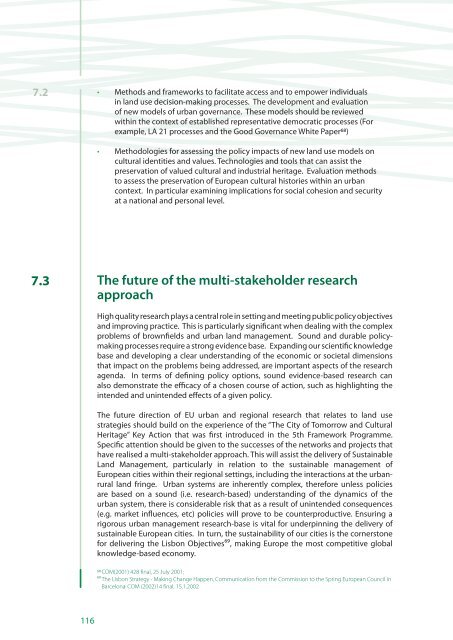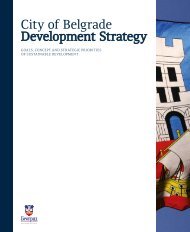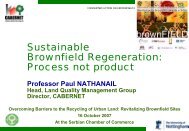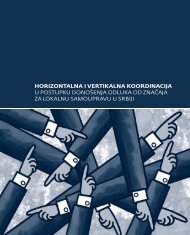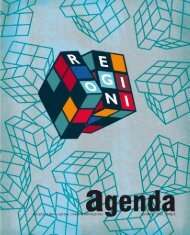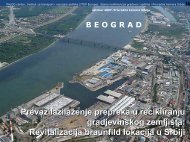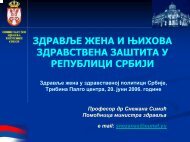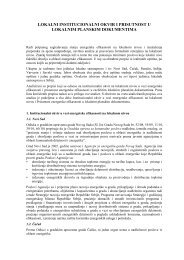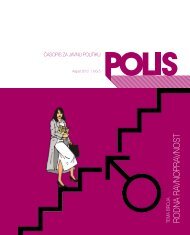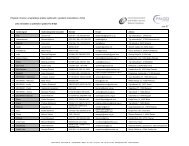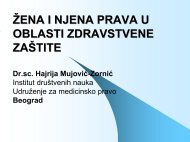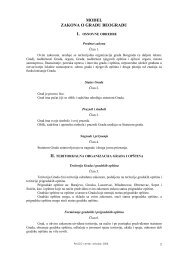Sustainable Brownfield Regeneration: CABERNET Network Report
Sustainable Brownfield Regeneration: CABERNET Network Report
Sustainable Brownfield Regeneration: CABERNET Network Report
You also want an ePaper? Increase the reach of your titles
YUMPU automatically turns print PDFs into web optimized ePapers that Google loves.
7.2 • Methods and frameworks to facilitate access and to empower individualsin land use decision-making processes. The development and evaluationof new models of urban governance. These models should be reviewedwithin the context of established representative democratic processes (Forexample, LA 21 processes and the Good Governance White Paper68)• Methodologies for assessing the policy impacts of new land use models oncultural identities and values. Technologies and tools that can assist thepreservation of valued cultural and industrial heritage. Evaluation methodsto assess the preservation of European cultural histories within an urbancontext. In particular examining implications for social cohesion and securityat a national and personal level.7.3The future of the multi-stakeholder researchapproachHigh quality research plays a central role in setting and meeting public policy objectivesand improving practice. This is particularly significant when dealing with the complexproblems of brownfields and urban land management. Sound and durable policymakingprocesses require a strong evidence base. Expanding our scientific knowledgebase and developing a clear understanding of the economic or societal dimensionsthat impact on the problems being addressed, are important aspects of the researchagenda. In terms of defining policy options, sound evidence-based research canalso demonstrate the efficacy of a chosen course of action, such as highlighting theintended and unintended effects of a given policy.The future direction of EU urban and regional research that relates to land usestrategies should build on the experience of the “The City of Tomorrow and CulturalHeritage” Key Action that was first introduced in the 5th Framework Programme.Specific attention should be given to the successes of the networks and projects thathave realised a multi-stakeholder approach. This will assist the delivery of <strong>Sustainable</strong>Land Management, particularly in relation to the sustainable management ofEuropean cities within their regional settings, including the interactions at the urbanruralland fringe. Urban systems are inherently complex, therefore unless policiesare based on a sound (i.e. research-based) understanding of the dynamics of theurban system, there is considerable risk that as a result of unintended consequences(e.g. market influences, etc) policies will prove to be counterproductive. Ensuring arigorous urban management research-base is vital for underpinning the delivery ofsustainable European cities. In turn, the sustainability of our cities is the cornerstonefor delivering the Lisbon Objectives⁶⁹, making Europe the most competitive globalknowledge-based economy.68 COM(2001) 428 final, 25 July 2001;⁶⁹ The Lisbon Strategy - Making Change Happen‚ Communication from the Commission to the Spring European Council inBarcelona, COM (2002)14 final‚ 15.1.2002116


